projects
Global Dance Collaboration in the Metaverse
This showcase performance is a vibrant and diverse showcase of experimental work with motion capture in practices of remote choreographic collaboration, sharing the outputs of a six-month digital dance research residency. Six teams of both dancers and creative technologists – from India, Thailand, Malta, Brazil, the US and the UK, will present unique breakthrough work in their own dance style and aesthetic.The Arts and Humanities Research Council-funded Goldsmiths Mocap Streamer project ‘Building an international network for virtual dance collaboration’ has developed work with six teams in a six-month artist residency(Opens in new window). This project showcase event will be a combination of live dance, immersive screen-based performance, and playful interactive installation. It is present in a hybrid in-person and live-streamed mode with remote dancers performing together within a virtual and interactive environment. The six project outputs will be presented within an afternoon programme of presentations and conversations – come for some, or all of these exciting team presentations.
Global Dance Collaboration in the Metaverse
NoisyLeaks!
NoisyLeaks! is a moment combining an exhibition alongside a series of events which will take place from October 8th to October 30th, 2022. NoisyLeaks! aims to collectively expose and celebrate the historical and cultural heritage of WikiLeaks and its influence on world-wide practices – a space and moment to share knowledge, practical skills and encourage freedom of information.
Remote Chaos Experience
The Rise and Fall of “Social Bot” Research
Painting Tech Dystopia: How the West tells itself fairytales about Asia – and believes they are real
Van Gogh TV – Piazza virtuale Hallo hallo ist da jemand?
Union Busting What is it and why you should care
Day to Night Timelapse Photography: “The Holy Grail”
When Wikileaks bumped into the CIA: Operation Kudo exposed
How to add Critical Thinking to your Making
“Information. What are they looking at?” A documentary on privacy for the broad audience.
Julian Assange and WikiLeaks: anatomy of a persecution
Stop general data retention in the EU – current plans for mass surveillance
Chinas Sozialkreditsystem: Das gefährlichste Bonitätssystem der Welt
Warum personalisierte Werbung verboten werden muss
Non Guided Tour
Imagine being dropped on a virtual map, at a random point exactly 100km from Neuer Berliner Kunstverein. You find yourself on a small dirt road with only minimal indicators of how to get back. The challenge is to navigate back to n.b.k. one click at a time.The piece is based on Tomas Schmit, Sanitas – 200 Theater Pieces from 1962:“A bus carries the audience 100 km away. There the audience is deposited.”Only, instead of being abandoned together with a bus full of fellow visitors, you are now abandoned in the comfort of your home on an online map. Walking is in street view with minimal markers and the challenge is to find your way back to Neuer Berliner Kunstverein in the center of Berlin.December 2021<3 !Mediengruppe BitnikCommissioned by Neuer Berliner Kunstverein for the retrospective of Tomas Schmit
The GoldenNFT Project
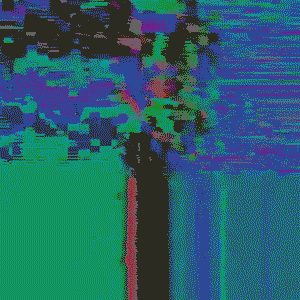
We are offering a collection of 5555 NFTs for individual sale. Among these works are the 16 originals that can be seen here on the site. The remaining 5539 works are collectibles that our script has made based on the originals. The sale of the individual works takes place covertly – anyone who buys an NFT does not know beforehand which one it is. Exactly 24 hours after the sale, you will find out which work you have bought. Then you can keep it or sell it on OpenSea. The price per NFT is 0.05 ETH (Ethereum).
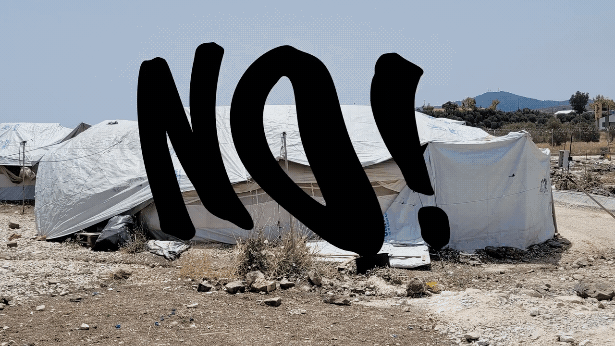
Alle NFTshavewesucceededinbuyingthegoldenvisayet.gifvon !MEDIENGRUPPE BITNIKZum Salehavewesucceededinbuyingthegoldevisayet.gifby !MEDIENGRUPPE BITNIKhavewesucceededinbuyingthegoldevisayet.gif is a HQ 4K Status GIF. The current status is No. The GIF will be exchanged to Yes in the smart contract as soon as the Golden Visa is secured.havewesucceededinbuyingthegoldevisayet.gif is part of a series of NFTs by artists to help secure Golden Visas for refugees via the European residency by investment schemeCredits:Photo from Refugee Camp in Lesbos by Milad E.Graphics support by Rahel Arnold, Zurich”NO!” font animation uses blotter.js library https://blotter.js.org/
Gravity
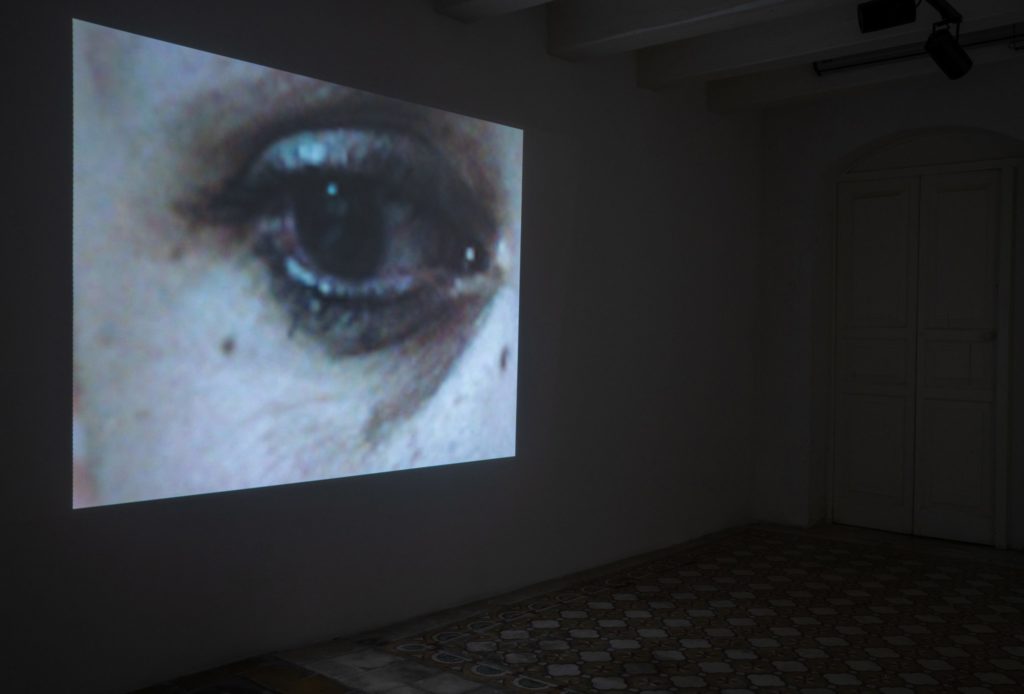
Gravity is a dual concept. In physics, it is a force of attraction, yet it is weak enough to not change the property of matter. It controls bodies in space, and binds them to the Earth, where it bestows them weight. Gravity is the condition we live in as human beings, regardless of our ethnicity, gender and cultural background; it also relates to our own bodies and the relationship with others. As such it is a common denominator, as physical as symbolic, sometimes both at the same time. In fact, without gravity, our bodies would be overpowered by other forces of nature, which would make drift inevitable and life as we know it impossible. In a way, gravity is both a form of physical resistance among peers and a frontier with alien energies and lives. Here, it is the point of departure for an exploration of the body and its meanings, in a society where striving towards the infinite possibilities of humankind leaves a profound gap with actual experience and the uncertain reaction to the many limits and setbacks we face. In this time of polarized disorder and public health emergency, where governments oscillate between dramatic containing measures and strategies designed to shore up capitalism, an exhibition titled Gravity is also a call to face the urgency of this momentum, condemn the hubris of anthropocentrism that brought us to this point, and peek behind the veil of false idols.
Video Vortex Hybrid Event: Play, Pause and Reset
To compensate for the real life events that we are all missing so much, the VideoVortex community gathers during a hybrid event that happens both online and in the courtyard of John Cabot University in Rome. Organized and hosted by Donatella Della Ratta and Albert Figurt (in Rome) and Andreas Treske and Geert Lovink (online), we will switch between a conversation robot, Zoom, a drone and the obligatory online video screening in an experimental setup that will try to beat the overall online fatigue. Remember Malta, let’s bring on new VideoVortex gatherings! In the meanwhile, let’s preserve the spirit, see you all thereWhat is online video today, fifteen years into its exponential growth? What started with amateur work of YouTube prosumers has spread to virtually all communication apps: an explosion in the culture of mobile sound and vision. Now, in the age of the smart phone, video accompanies, informs, moves, and distracts us. Are you addicted yet? Look into that tiny camera, talk, move the phone, show us around — prove to others that you exist! Founded in 2007 by the Amsterdam Institute of Network Cultures, Video Vortex is a lively network of artists, activists, coders, curators, critics, and researchers that deals with all the facets of both politics and aesthetics of online video.
The Wandering Tower – Mahala Festival
The Mahalla Festival 2020 was scheduled to take place in Arbil, Iraq, with screenings, performances, talks, round tables and concerts. The festival wanted to bring together artists, academics, institutions and stakeholders from different fields and different backgrounds to support an intercultural understanding in times of increased mobility and search for identity.Under the critical circumstances and in the light of the objectives of the destabilization in Iraq we had to cancel the Mahalla festival in January 2020. The new escalation of violence in Iraq and Syria is more than a slap in the face of its citizen.We were planning to shift the Mahalla Festival 2020 to Cyprus. But then in February not online China but the whole world was confronted with the COVID-19 pandemic which changed the way we communicate and keep our creative narration alive for the time being.We are now globally faced with the measures that are necessary to control the pandemic and staying in self isolation to slow the spread of the pandemic. Following the global lockdown all cultural and community events and any kind of mobility are suspended and the economy stands still. Many cultural actors and creative initiatives try to survive not only artistically but also existentially. Under these circumstances the Mahalla Festival 2020 will take place as a remote festival to overcome self-isolation, demobilization and paralysis.
On December 26 & 27, 2020, the Unfinished Art Space based in Malta is organizing a 2-days exhibition entitled “Us”- Clubbing Report, with photos from artist Charlene Galea.
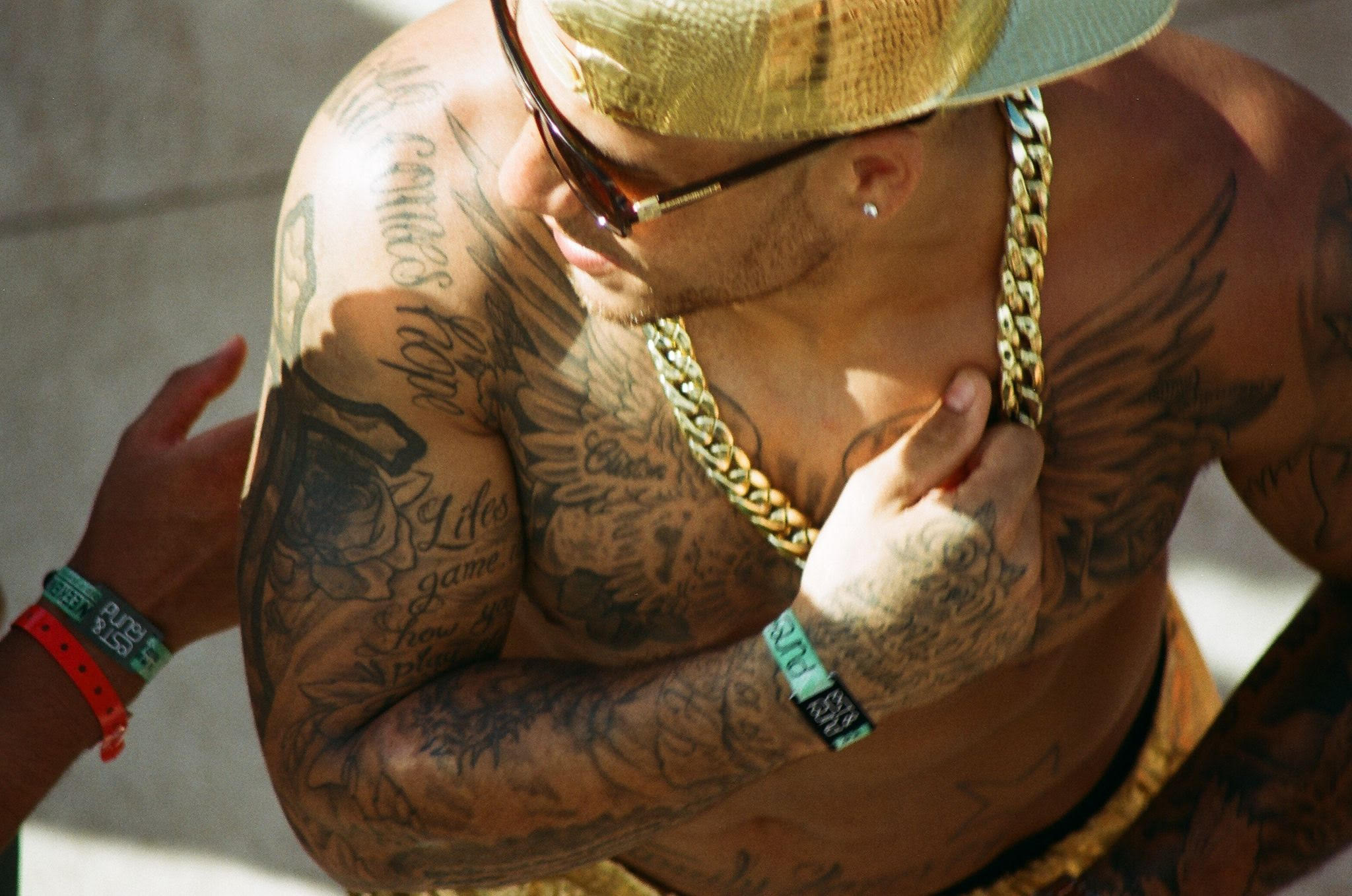
Curated by Margerita Pulè – who has participated in the Mahalla Festival 2018 with the installation, The Cement Bakery at the Palazzo in Zabbar –, the exhibition “Us” brings us close to moments and situations that are made possible by clubs and their atmospheres, the people constituting them and the soundtracks invading our ears.
In a time when clubs all over Europe are closed, artist and photographer Charlene Galea presents the exhilaration, intimacy and beauty of the clubbing scene through 35mm photographs dating from 2012 to 2020 and covering clubbing scenes in Barcelona, Berlin, France, Ibiza, London, Malta, Morocco, the Netherlands, Romania, and Tunisia.
In the 2-day exhibition, the physical and emotional intensity created, transcending generational and social constructs will be documented closely and truthfully, and hopefully make us travel in our memories of warm clubbing nights…
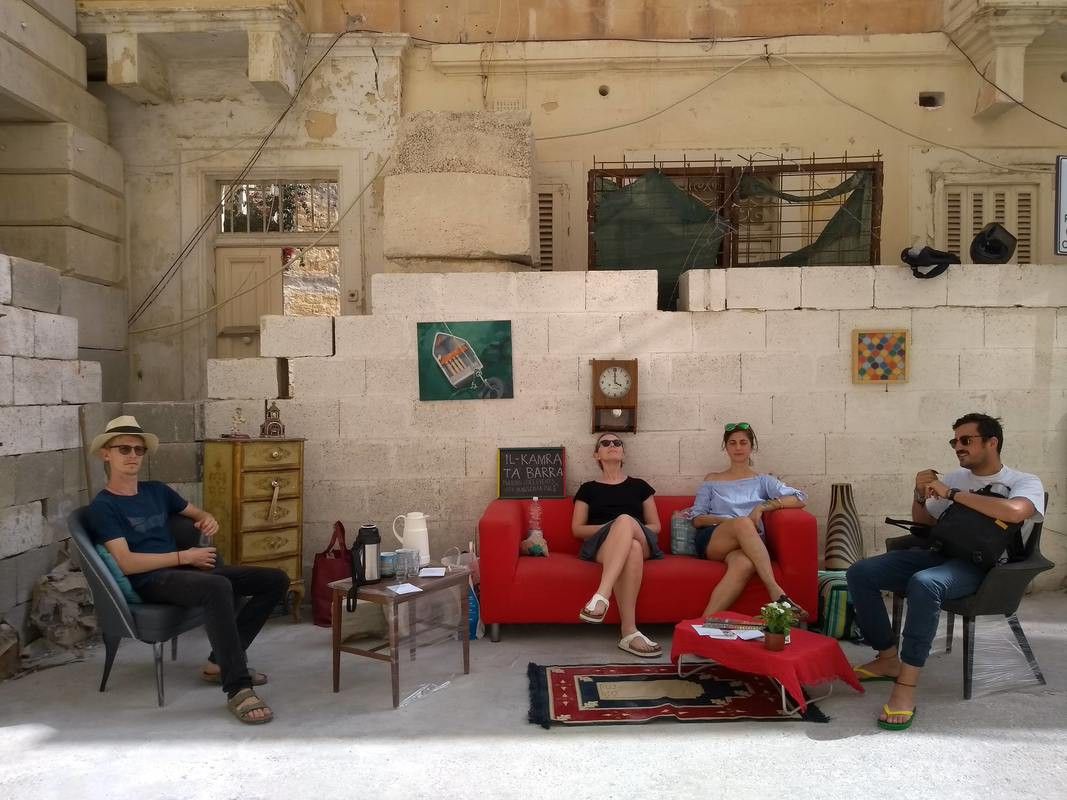
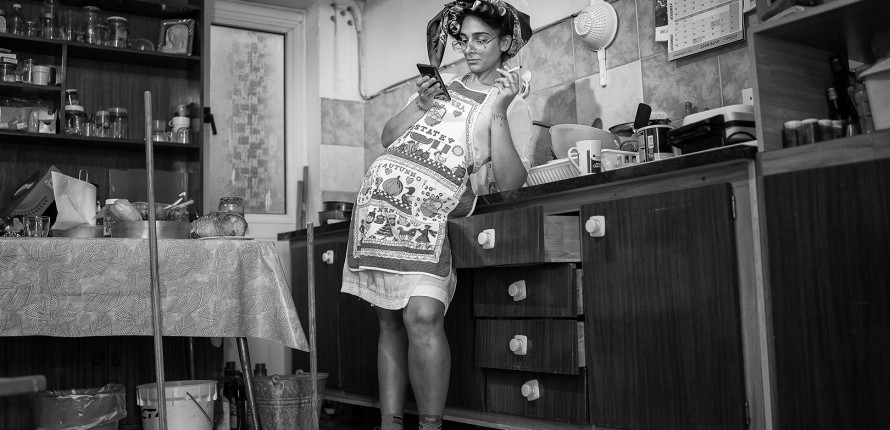
Excerpt from the Mahalla Festival News post: No later than one week ago I was standing in the queue of the KitKatClub in Berlin, not waiting for my turn to enter the dancefloor but standing in line like the others to get a quick-corona-test.
While jumping from one foot to the other, trying to get rid of the cold, I was reading the signs of the Clubcommission Berlin, calling for an equal treatment of the clubbing scene within the cultural area, especially in times of COVID-19. It almost sounded like a manifesto and made me think of these empty spaces and their significance in today’s world.
But Berlin is not the only place where club culture is defended and questioned. Currently active in her hometown in Malta, photographer and performance artist Charlene Galea has been taking photos of the clubbing phenomenon since 2012 and is reminding us of the multitude of experiences one is usually able to live in such a place.
Under the title “Us” Clubbing Report, she will exhibit a selection of these photos on December 26 & 27 in cooperation with the Unfinished Art Space, pointing out how important clubs are for people as spaces of freedom, of movement, of fluid identities…
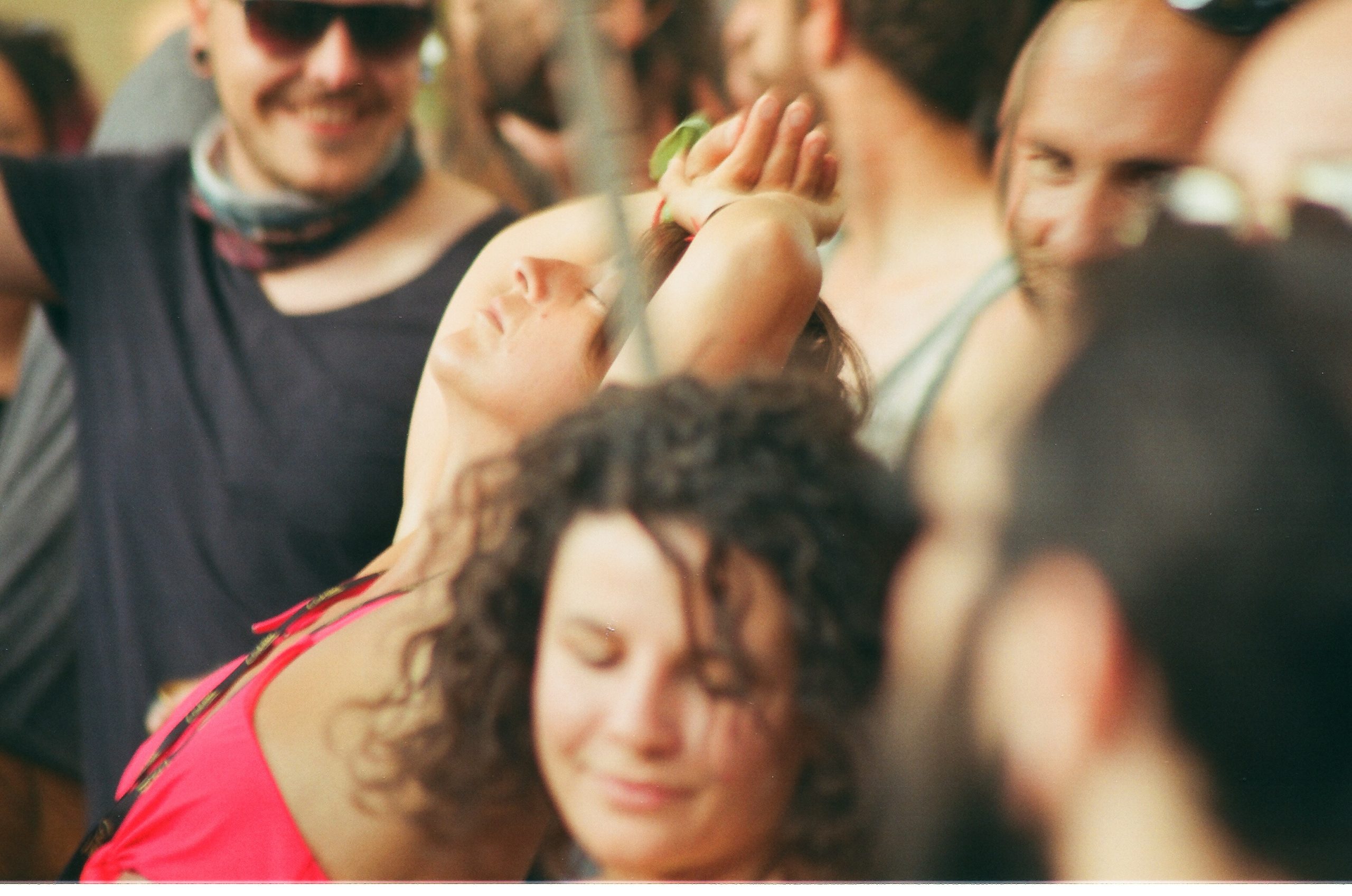
Charlene Galea is a Maltese artist who likes to stand on both sides of the camera. As an observer, particularly in numerous clubs around Europe where she first started to watch human bodies in action, and as a performer, an artistic approach she works with to guide people through concepts, using Instagram “stories” as a medium.
During her time at the London College of Fashion she started taking photos while going to clubs asking herself “Why are they here? What are they doing? Why is this occasion so special?”, while confessing that her favourite spot in clubs is the cloakroom area, a space of transformation where bodies rid themselves of their outer layers before getting on “stage”, a term we both agree upon – clubs are stages of freedom.
This diversified and international “field study” and the three-day takeover of a hotel in Malta this summer – which lead to strong blame from the government regarding COVID-19 outbreak on the island – were the triggers for this exhibition. Never having wanted to publish these images before, in fear of disappearing in the monotony of posts and pictures of weekend parties, “now is the right time”, she says, as clubs have closed again around the world.
Nevertheless, for Charlene Galea this moment of pausing and shutting down is having a positive impact as an anti-capitalistic act, making us aware of the former over-consumption of clubbing experiences. She is aware of what she calls a “loop”, arising when going out to a club: first dressing up, meeting up with friends, getting a drink beforehand etc. A loop that is affecting our club experience. “The hugs could be longer, one could start a conversation with someone who maybe really needs to talk”. We now have some time to think of the value of those spaces in our life and how we want to use them in the future.
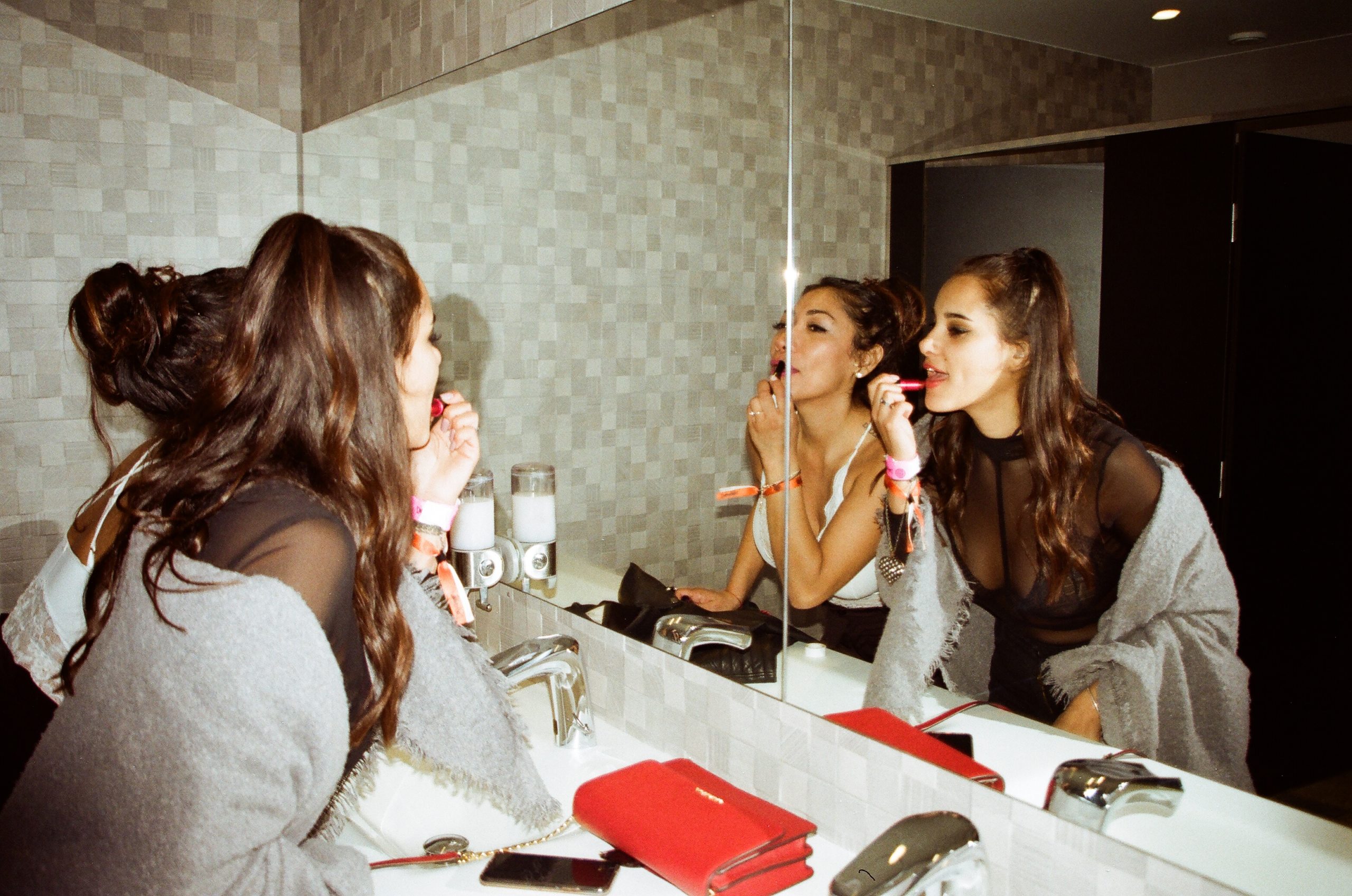
Whilst diving further into our conversation, I was impressed by the multitude of layers she looks at while “analysing” and choosing clubs as a motif for her artistic practice. The clubbing experience is vast, constituted by arrangements made between people before and after, a social experience in itself. The economic aspect also plays a role in her observations as the clubbing industry employs a huge number of staff. A cultural layer also surrounds clubs and their locations.
Indeed, Charlene Galea has been travelling to festivals in foreign countries, realizing that people tend to forget that there is a place outside of the club that can be visited, looked at, interacted with. Instead of consuming the event and flying back to their country the artist invites people to have a look around themselves, to be more aware of their physical presence in a new cultural area.
A section of the exhibition will be dedicated to her travel experiences, juxtaposing photos of parties and of villages she visited.
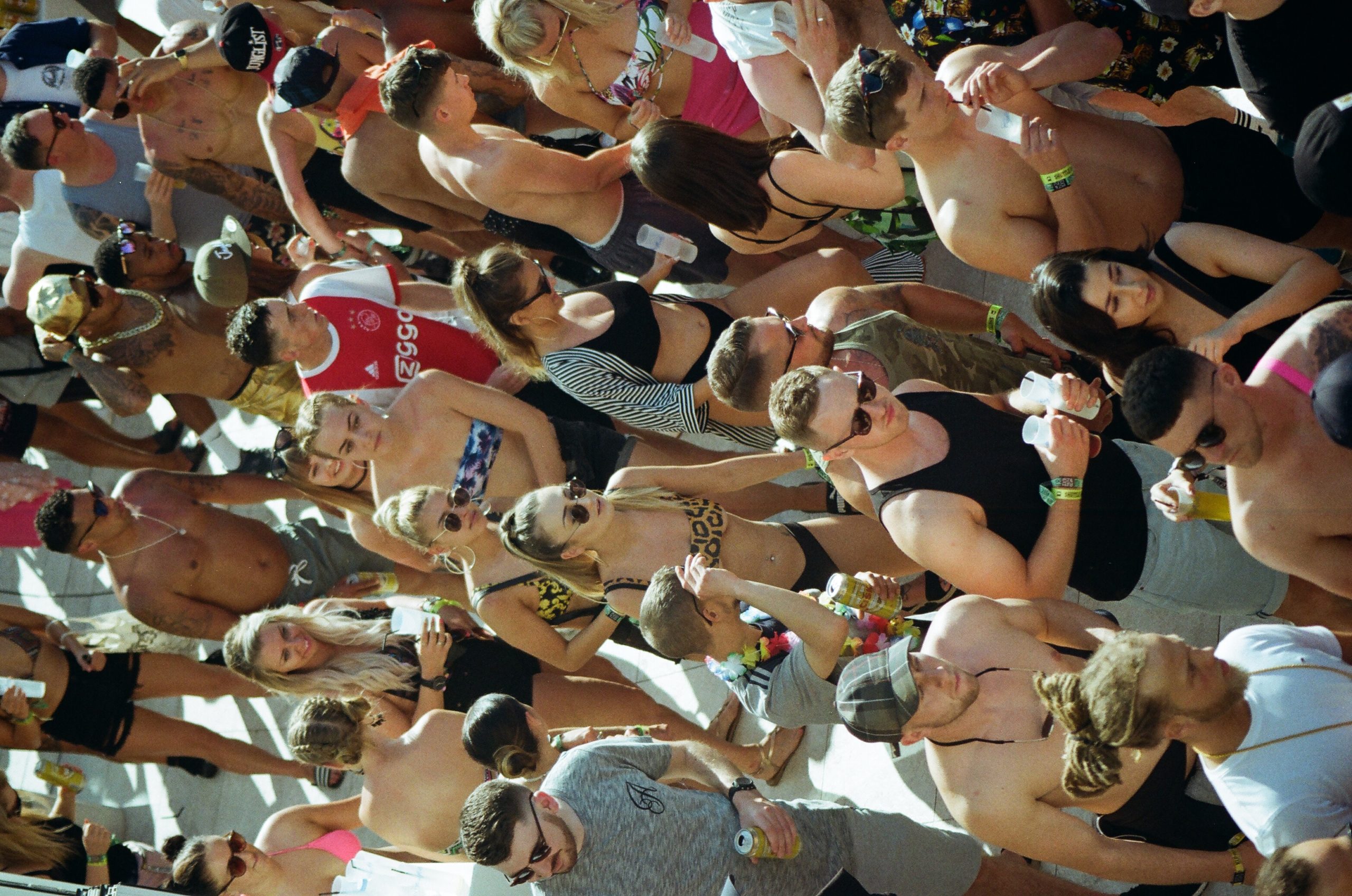
Regarding the way Charlene Galea dives into a topic and deepens concepts and practices under an anthropological and performative eye, it is not a surprise that the exhibition was curated by Margerita Pulè who manages the Unfinished Art Space. In comparison to the commercial art market in Malta, the Unfinished Art Space gives space to political art and concepts creating thoughts, in a more underground way. “It is the right moment to come out with those photos: in a safe space that is not taken for granted”.
The exhibition will be composed of 40 to 50 images organized in 8 different spaces. “Entering at their own risk”, people will have a first insight into the club experience. In a second room, a space will be reserved for pictures of outfits, statements, preparation for the club. The third room will be dedicated to travel experiences in Tunisia, Ibiza, Marseille, and Morocco where globalization has made clubs homogeneous in the inside, standing in stark contrast to the outside world of those cities and countries.
In the kitchen there will be kissing portraits, in the bathroom some shots of girls in club toilets, before walking to the outside area presenting photos of festivals as well as portraits of sleeping people. The 7th room will include intimate photos and the last room will show after party pictures which are, for the artist, always full of surprises.
A travel around times and spaces with colourful flashbacks…
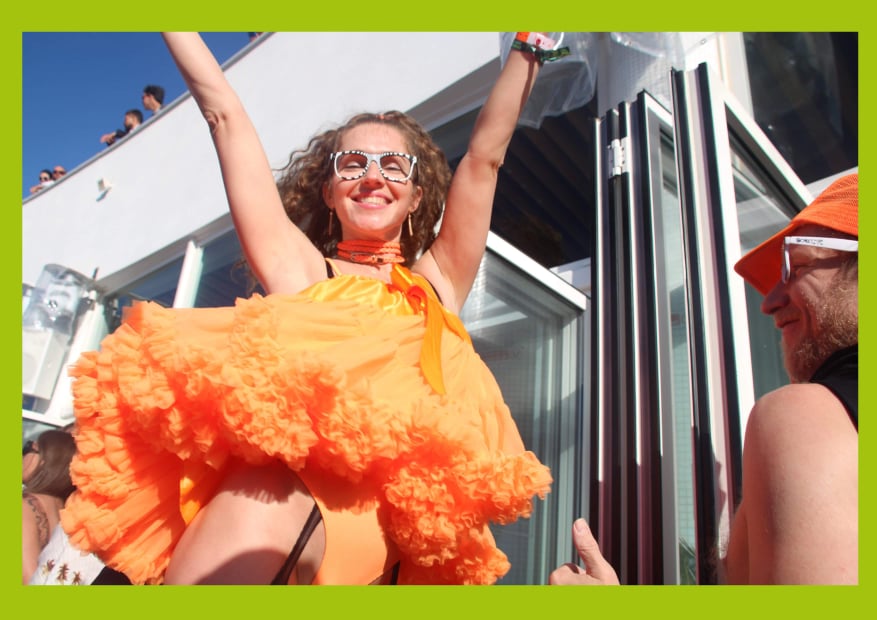
“Probably people will have to queue outside because of the corona rules, but at least it will be a metaphor for the queuing moment when going to a club”, says Charlene Galea as we start shifting our discussion towards her position as an artist in Malta. During COVID-19 times it is difficult to get support from the state as the government ranks artists on a marking scheme which creates a feeling of competition.
“Being an artist in Malta is not so easy”, she states explaining that numerous people criticize her performances and her way of presenting herself on Instagram. A part of the population is still shocked by the clubbing scene, open air parties and liberated bodies.
Women in Malta are also still attached to numerous beauty standards which Charlene Galea tries to overcome through her work, liberating movements when “modelling” herself on her photos. She wants to shoot women as they are, in a more organic way.
Through her Instagram account she already connected to a big network and considers stories as a good way to engage and communicate with her audience, but also to know it and produce art for groups that are interested. “Who is my audience?” is a constant question she asks herself in order to stay flexible and open – surely not a bad quality for artists who today, more than ever, have to adapt to survive and preserve their art in unequal societies.
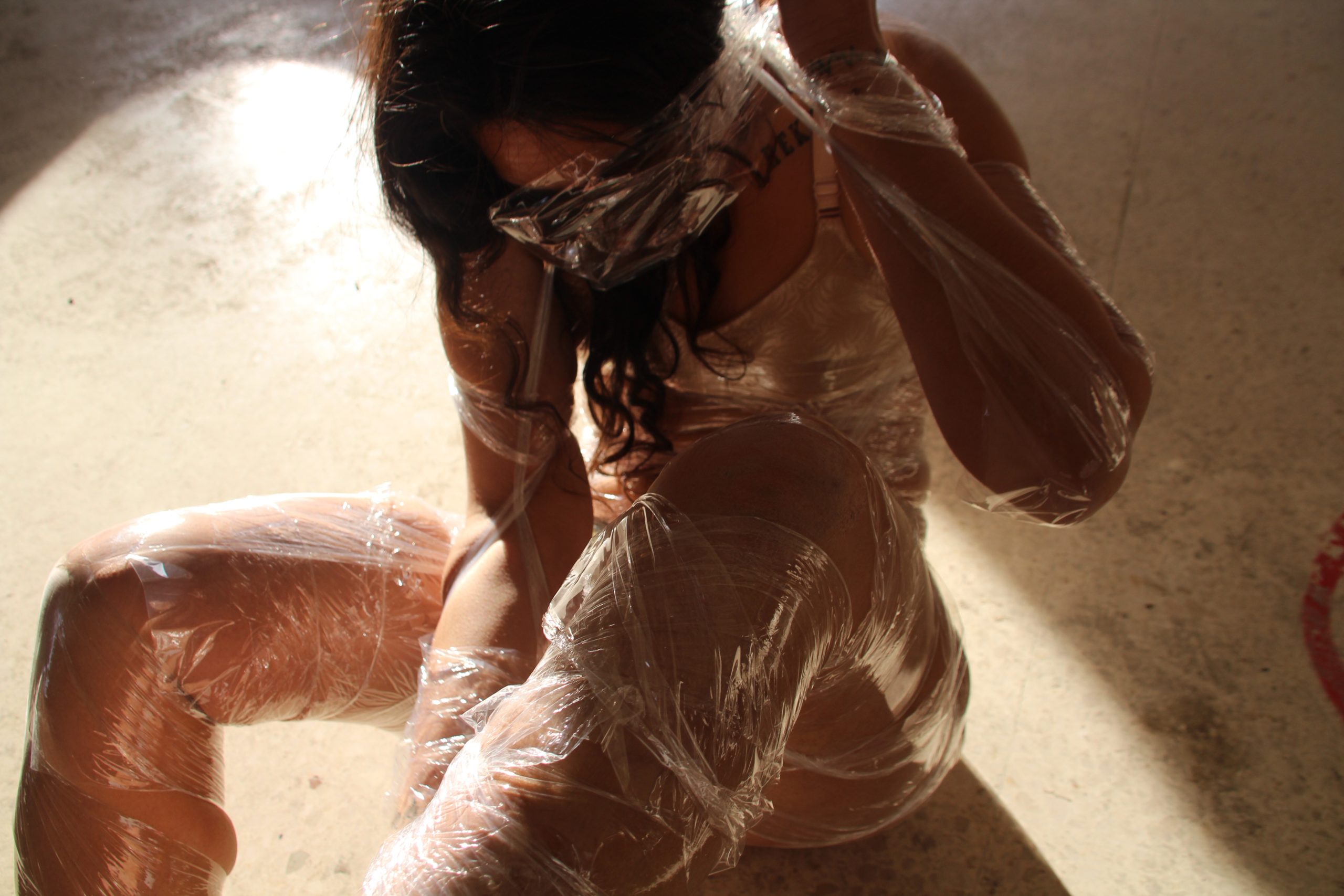
The exhibition “Us” Clubbing Report is part of The Wandering Tower, the 2020 edition of the Mahalla Festival taking place in Istanbul: http://mahalla.inenart.eu/2020/12/01/a-clubbing-report-in-a-world-without-clubs/
You can support Charlene Galea’s work for an artistic surprise in exchange by clicking here.
You Are What You Buy
We took part in the YAWYB workshops. Excerpt from Times of Maltaabout YAWYB: An artistic research project held between 2016 and 2017 questioned the effects of consumption on buyers. This year, a second edition is delving deeper into the subject and is particularly looking at the impact of the COVID-19 pandemic on our production, shopping and consumption habits.
You Are What You Buy (YAWYB) reacts to current issues on consumption and consumerism, offering an alternative artistic experience. The first edition was a year-long transdisciplinary project that departed from a reflection on our need to affirm ourselves as consumers. The research process and final presentation were set in a supermarket in Malta, offering a different possibility of where and how to experience art − away from the art institution.
Since then, the team continued thinking on how they could develop the project further.
“In the wake of the pandemic, it felt like a natural progression to revisit the project − it almost felt like a responsibility not to ignore all the changes in our production, shopping and consumption habits resulting from the impact of the pandemic. This is how YAWYB ‒ A Remote ReVisit came about,” artist Kristina Borg says.
“Also, YAWYB has always anticipated to catalyse change in our production, shopping and consumption habits, specifically inviting us producers and consumers to engage in more intelligent thinking processes while we produce and shop, with the aim of contributing to a new normal that guarantees responsible production and consumption for sustainable cities and communities. And what better time, when we’re affected by the pandemic, to reflect on this?” she continues.
In answering the research question (see box on right) and more, YAWYB – A Remote ReVisit moves outside and beyond the supermarket space to incorporate other spaces and places of production and consumption in our neighbourhoods. These include, but are not limited to, the local grocery store or the mini-market, the open markets, the supermarket, the household store, the clothes store, the coffee place, the restaurant and online platforms.
This second edition focuses mainly on research; however, the outcomes are presented through artistic and creative means.
Similar to the first edition, this second edition also collaborates with a group of community co-creators as well as with service providers. This was done remotely due to the pandemic, hence the ‘remote’ in the title. In the wake of the pandemic, it felt like a natural progression to revisit the project
“With this in mind, it is important to mention that such remote means allowed the project to widen its audience to a European-based one, attracting survey respondents and community co-creators based in Austria, Belgium, France, Germany, Greece, Ireland, Italy, Latvia, The Netherlands, Spain, Switzerland, Turkey and the UK,” Borg enthuses.
“This has also provided a wider spectrum of shared experiences as affected by different degrees and levels of the pandemic in different countries.”
